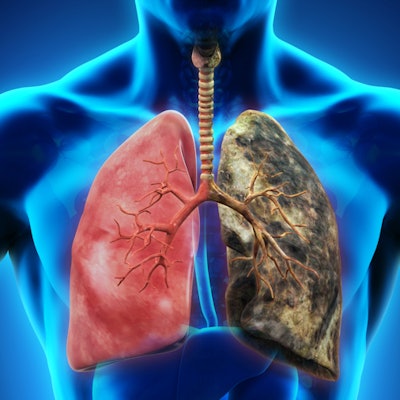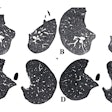
The rate of compliance with CT lung cancer screening among those at high risk of the disease is lower than rates reported from randomized clinical trials, according to research published November 16 in JAMA Network Open.
And there are particular factors that seem to contribute to this lack of adherence, wrote a team led by Dr. Maria Lopez-Olivo, PhD, of the University of Texas MD Anderson Cancer Center in Houston.
"Current smokers, patients of races other than white, those younger than 65 years, and those with less than a college education had lower adherence to screening," the group noted.
Lopez-Olivo and colleagues conducted a research review that included 15 lung cancer screening studies cited on Medline, Embase, Scopus, Cinahl, and Web of Science between January 2011 and February 2020. The 15 studies represented 16,863 patients.
The investigators found a pooled CT lung cancer screening compliance rate of 55%. They also found the following:
- Current smokers were less likely to undergo screening than former smokers.
- White patients were more likely to undergo screening than those of other races.
- People between the ages of 65 and 73 were more likely to comply than those between the ages of 50 and 64.
- Individuals who had completed four or more years of college were more likely to undergo lung cancer screening than those who did not complete college.
"In this study, the pooled lung cancer adherence rate after a baseline screening was far lower than those observed in large randomized clinical trials of screening. Interventions to promote adherence to screening should prioritize current smokers and smokers from minority populations," the team concluded.




















